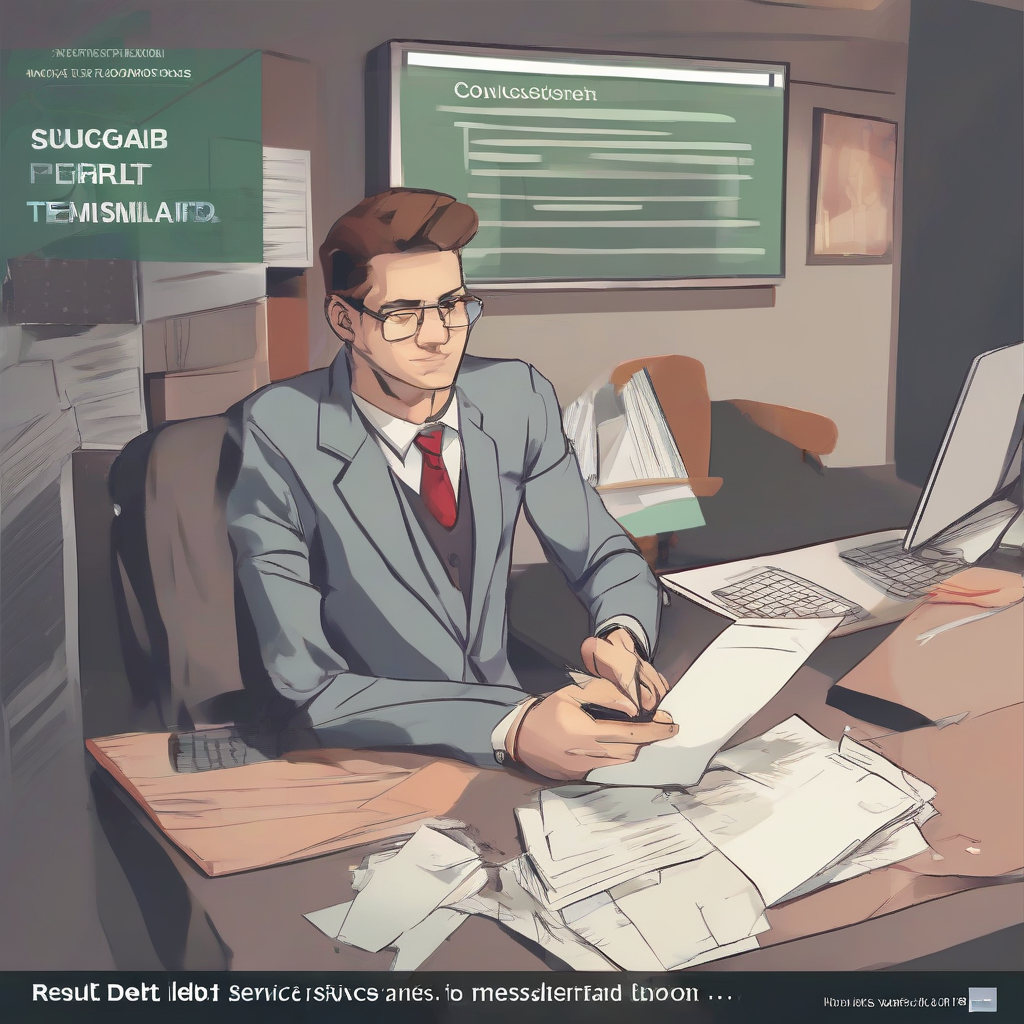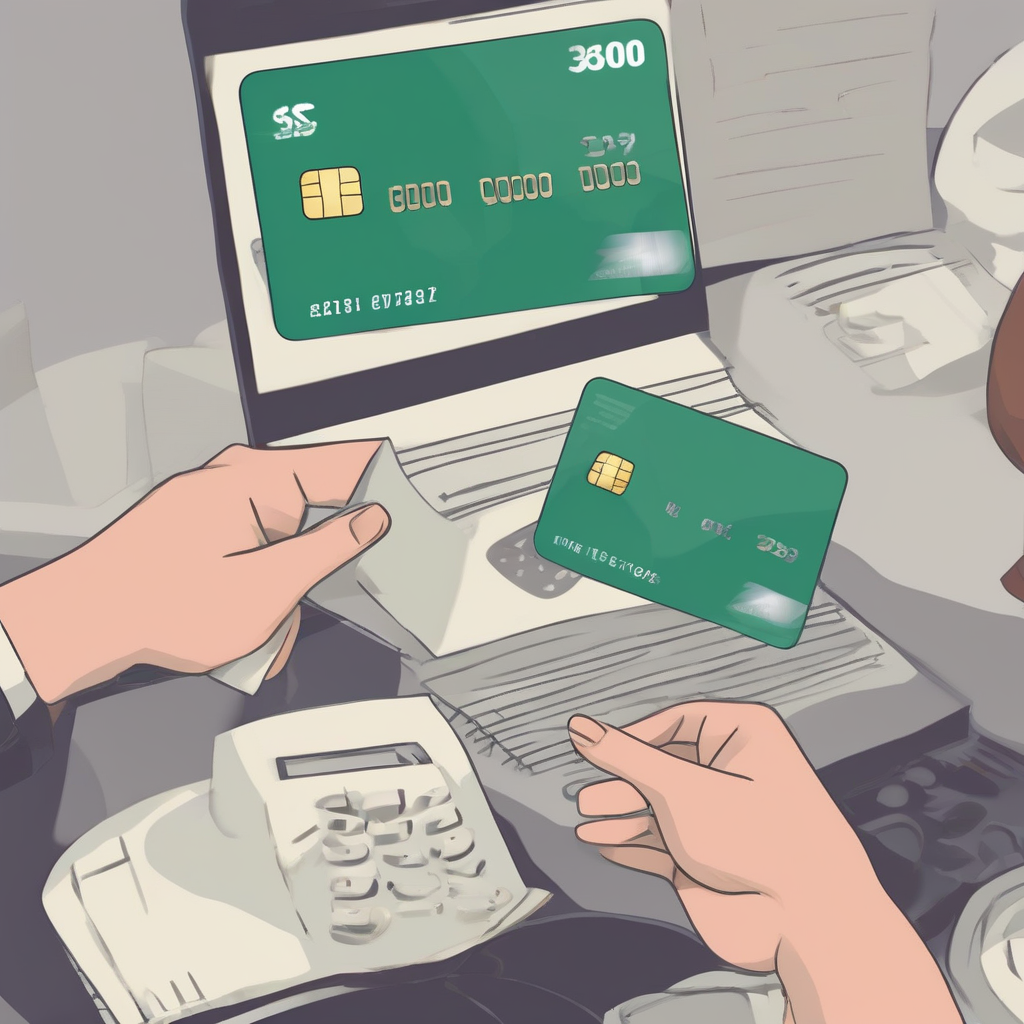Consolidated Debt Services: A Comprehensive Guide to Streamlining Your Finances

Consolidating your debts can be a daunting task, but it can also be a powerful tool for taking control of your finances and achieving long-term financial stability. This comprehensive guide will explore the ins and outs of consolidated debt services, providing you with the knowledge and resources you need to make informed decisions about your financial future.
We'll delve into the various types of consolidated debt services, including:
- Debt Consolidation Loans
- Balance Transfer Credit Cards
- Debt Management Plans
- Debt Settlement Programs
- Bankruptcy
This guide will also cover the benefits and drawbacks of each option, as well as factors to consider when choosing the right solution for your unique situation.
Understanding Consolidated Debt Services: A Primer
Consolidated debt services refer to any method used to combine multiple debts into a single, more manageable payment. This process can help to simplify your finances, lower your monthly payments, and improve your credit score.
The main advantage of consolidated debt services is that they can reduce your overall interest payments. By consolidating your debts into a lower interest rate loan, you can save money on interest charges and pay off your debts more quickly.
However, consolidated debt services are not a one-size-fits-all solution. It's important to carefully consider your individual circumstances and choose the option that best suits your needs.
Types of Consolidated Debt Services
Let's explore the different types of consolidated debt services in detail:
1. Debt Consolidation Loans
- **Definition:** Debt consolidation loans are personal loans that you can use to pay off multiple debts, such as credit cards, medical bills, or student loans.
- **How it Works:** You take out a single loan with a lower interest rate than your existing debts and use the proceeds to pay off those debts. You then make monthly payments on the consolidation loan.
- **Benefits:**
- Lower monthly payments
- Lower interest rates
- Simplified repayment process
- **Drawbacks:**
- May not be available to everyone with poor credit
- Can extend the repayment period
- Potential for higher overall interest charges if you don't pay off the loan quickly
2. Balance Transfer Credit Cards
- **Definition:** Balance transfer credit cards allow you to transfer balances from high-interest credit cards to a card with a lower interest rate.
- **How it Works:** You apply for a balance transfer credit card and transfer the balances from your existing cards to the new card. You then make payments on the consolidated balance.
- **Benefits:**
- Lower interest rates
- Can help to improve your credit utilization ratio
- May offer a 0% introductory APR for a limited time
- **Drawbacks:**
- May have a balance transfer fee
- Introductory APRs are typically temporary
- Can encourage overspending if not used responsibly
3. Debt Management Plans
- **Definition:** Debt management plans (DMPs) are programs offered by credit counseling agencies that help you negotiate lower interest rates and monthly payments with your creditors.
- **How it Works:** You work with a credit counselor to create a budget and consolidate your debts into a single monthly payment. The counselor then negotiates with your creditors on your behalf to reduce your interest rates and minimum payments.
- **Benefits:**
- Lower monthly payments
- Reduced interest rates
- Professional guidance and support
- **Drawbacks:**
- May require a monthly fee
- Creditors may report payments to credit bureaus, potentially affecting your credit score
- May not be available to everyone
4. Debt Settlement Programs
- **Definition:** Debt settlement programs work with creditors to negotiate a settlement for less than the total amount owed.
- **How it Works:** You make payments into a special account managed by a debt settlement company. Once the account has accumulated enough funds, the company negotiates a settlement with your creditors for a lower amount.
- **Benefits:**
- Can significantly reduce the amount owed
- Can help to improve your credit score over time
- **Drawbacks:**
- May have high fees and penalties
- Can damage your credit score in the short term
- Not all creditors are willing to settle
5. Bankruptcy
- **Definition:** Bankruptcy is a legal process that allows individuals and businesses to get rid of their debts. It's a last resort option that should only be considered if other debt relief options have failed.
- **How it Works:** You file for bankruptcy with a court, and a bankruptcy trustee is appointed to oversee your finances. The trustee then liquidates your assets (Chapter 7) or creates a repayment plan (Chapter 13) to pay off your debts.
- **Benefits:**
- Can eliminate most of your debts
- Can provide a fresh financial start
- **Drawbacks:**
- Can have a severe impact on your credit score
- Can affect your ability to obtain credit in the future
- Can lead to the loss of assets
Factors to Consider When Choosing a Consolidated Debt Service
When choosing the right consolidated debt service, it's important to consider the following factors:
- **Your Credit Score:** Your credit score will determine your eligibility for various debt relief options. If you have a poor credit score, you may be limited to options like debt management plans or bankruptcy.
- **Your Debt-to-Income Ratio:** Your debt-to-income ratio (DTI) is the percentage of your monthly income that goes towards debt payments. A higher DTI can make it more challenging to qualify for a debt consolidation loan or balance transfer credit card.
- **Your Financial Goals:** Consider your long-term financial goals when choosing a consolidated debt service. Do you want to pay off your debts quickly, or are you looking for a solution that will help you manage your debt over time?
- **Your Willingness to Accept Risk:** Some debt relief options, like debt settlement programs, carry a higher risk of damaging your credit score. Others, like debt consolidation loans, may require a more responsible approach to avoid accumulating new debt.
- **Your Interest Rates:** Compare the interest rates offered by different lenders and credit card companies before choosing a debt relief option. Aim for the lowest possible interest rate to minimize your overall interest charges.
- **Fees and Penalties:** Be aware of any fees and penalties associated with a particular debt relief option. Some programs may charge high upfront fees or have hefty penalties for missed payments.
- **Customer Support:** Look for a consolidated debt service provider with a strong reputation for customer support. This will be important if you have any questions or need help navigating the process.
Tips for Success with Consolidated Debt Services
Once you've chosen a consolidated debt service, here are some tips for maximizing your chances of success:
- **Create a Realistic Budget:** Start by creating a detailed budget that accounts for your income and expenses. This will help you determine how much you can afford to pay towards your consolidated debt each month.
- **Stick to Your Budget:** It's crucial to stick to your budget and resist the urge to overspend. This will help you stay on track with your debt repayment goals.
- **Make More Than the Minimum Payment:** If possible, make more than the minimum payment on your consolidated debt each month. This will help you pay off your debt faster and save on interest charges.
- **Avoid Taking On New Debt:** Once you've consolidated your debts, try your best to avoid taking on any new debt. This will prevent you from undoing all the progress you've made.
- **Seek Professional Help:** If you're struggling to manage your debt on your own, don't hesitate to seek professional help. A credit counselor can provide guidance and support to help you get back on track.
Conclusion
Consolidated debt services can be a powerful tool for taking control of your finances and achieving financial freedom. By carefully considering your options, choosing the right solution for your unique circumstances, and following the tips outlined above, you can set yourself on a path towards a more secure financial future.
Remember, debt consolidation is just one step in the journey towards financial stability. It's important to continue to manage your finances responsibly, avoid accumulating new debt, and build a solid foundation for your financial well-being.
What's Your Reaction?

















